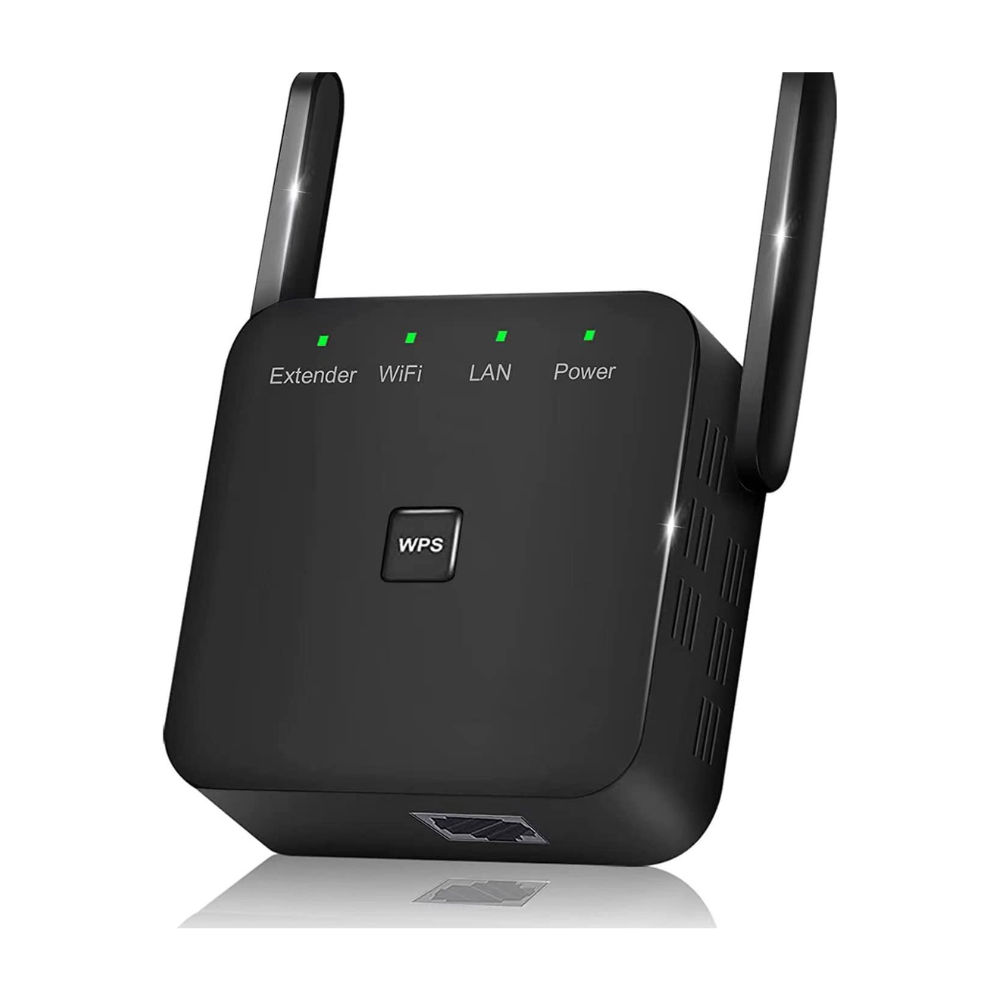Do WiFi Extenders Really Work? | The True Power Behind Them 💪

In today's fast-paced world, a stable and reliable internet connection is essential. However, many of us have experienced the frustration of weak WiFi signals in certain areas of our homes or offices.
is where WiFi extenders come into play. But do they really work? In this article, we will uncover the truth about WiFi extenders and whether they are a viable solution to boost your WiFi signal.
➩ How do WiFi Extenders Work?

Image Credit-Amazon
WiFi extenders, also known as WiFi boosters or repeaters, are devices designed to amplify and extend the range of your existing WiFi network. They work by picking up the existing WiFi signal from your router and rebroadcasting it, effectively extending the coverage area. This allows devices that are located far away from the router or in areas with poor signal strength to connect to the network more reliably.
WiFi Extenders as Signal Bridges
One of the key functions of WiFi extenders is to act as a bridge between your router and devices with weak signals. They essentially capture the WiFi signal from the router and transmit it to areas where the signal strength is lacking. This can be particularly useful in larger homes or offices where the WiFi signal may struggle to reach certain corners or floors.
Repeater vs. Access Point Extenders
WiFi extenders come in two main types: repeater extenders and access point extenders. Repeater extenders rebroadcast the same WiFi network, essentially creating a new network with the same name and password. On the other hand, access point extenders create a new WiFi network, which can be useful if you want to segregate your network for different purposes or if you have multiple routers.
➩ Do WiFi Extenders Really Work?
These nifty little devices promise to extend your WiFi range and coverage area, ensuring that you have a strong and stable connection no matter where you are in your house. But do they really work? Let's dive into the pros and cons of WiFi extenders to find out!
✅ Pros: They can help extend your WiFi range and coverage area
One of the biggest advantages of WiFi extenders is their ability to extend the range of your WiFi signal. If you have dead spots in your home where the WiFi signal just doesn't reach, a WiFi extender can be a lifesaver. By placing the extender in a strategic location, it can pick up the existing WiFi signal and amplify it, effectively extending the range and coverage area. This means you can finally enjoy a strong and stable connection in every nook and cranny of your home, from the basement to the attic.
✅ Pros: Simple to set up and use
Another great thing about WiFi extenders is that they are incredibly easy to set up and use. Most WiFi extenders come with simple plug-and-play functionality, meaning you just need to plug them into a power outlet and follow a few simple steps to get them up and running. No technical expertise required! This makes WiFi extenders a great option for those who are not tech-savvy but still want to improve their WiFi signal.
❌ Cons: Often slow down your WiFi speed significantly
While WiFi extenders can be a lifesaver when it comes to extending your WiFi range, they do have their downsides. One of the biggest drawbacks is that they often slow down your WiFi speed significantly. This is because the extender works by picking up the existing WiFi signal and rebroadcasting it, which can introduce some latency and decrease the overall speed. So, while you may have a stronger signal in those hard-to-reach areas, you may also experience slower internet speeds.
❌ Cons: Can reduce total network capacity
Another downside of WiFi extenders is that they can reduce the total network capacity. This means that if you have multiple devices connected to the extender, the overall performance of your network may suffer. This is because the extender is essentially splitting the available bandwidth between all the connected devices, which can lead to slower speeds and increased latency. So, if you have a large household with many devices, you may want to consider other options for improving your WiFi signal.
❌ Cons: May cause intermittent connectivity issues
Lastly, WiFi extenders may cause intermittent connectivity issues. This can happen if the extender is not properly placed or if there are interference issues with other wireless devices in your home. In some cases, the extender may struggle to maintain a stable connection, resulting in frequent drops or interruptions in your WiFi signal. While this may not be a dealbreaker for everyone, it's definitely something to consider before investing in a WiFi extender.
➩ Factors That Affect Performance
When it comes to WiFi extenders, there are several factors that can affect their performance. Let's take a closer look at some of these factors to understand if WiFi extenders really work.
1. Extender Placement - The Farther, The Weaker
One important factor that can impact the performance of a WiFi extender is its placement in your home. The farther the extender is from your main router, the weaker the signal it will receive. This means that if you place the extender too far away, it may not be able to effectively extend your WiFi network. So, it's crucial to find the right spot for your extender where it can receive a strong signal from your router.
2. Number of Walls and Obstacles
Another factor to consider is the number of walls and obstacles between your extender and the router. Thick walls, furniture, and other obstacles can weaken the WiFi signal, making it harder for the extender to transmit a strong signal to areas with poor coverage. If you have multiple walls or obstacles in the way, you might need to experiment with different extender placements to find the sweet spot that provides optimal coverage.
3. WiFi Interference from Other Networks
WiFi interference from other networks can also affect the performance of your WiFi extender. If you live in a densely populated area with many neighboring networks, the WiFi signals can overlap and cause interference. This interference can lead to a weaker and slower WiFi signal, even with the help of an extender. To mitigate this issue, consider changing your WiFi channel or using a dual-band extender that can operate on different frequencies to avoid interference.
4. Extender's Specifications and Technology
The specifications and technology of the WiFi extender itself play a crucial role in determining its performance. Different extenders come with different capabilities, such as the range they can cover and the maximum speed they can support. It's important to choose an extender that matches your specific needs. If you have a large home or multiple floors, opt for a high-powered extender with a wide coverage area. Additionally, look for extenders that support the latest WiFi standards, such as 802.11ac, for faster and more reliable connections.
➧ Alternative Solutions
Before we delve into WiFi extenders, it's worth considering some alternative solutions that might address your WiFi woes. One popular option is using a mesh WiFi system. This involves setting up multiple access points throughout your home, creating a network that seamlessly extends the WiFi signal. Mesh systems are known for their reliability and ability to handle heavy traffic, making them a great alternative to WiFi extenders.
Another option is to add more access points to your existing network. This involves strategically placing additional routers or access points in areas where the WiFi signal is weak. By doing so, you can effectively extend the coverage of your network without relying on WiFi extenders. While this solution requires a bit more technical know-how, it can be a cost-effective and efficient way to improve your WiFi signal.
Upgrading your router is also worth considering. Older routers may not have the latest technology and capabilities to provide a strong and reliable WiFi signal. By investing in a newer, more powerful router, you may be able to eliminate the need for WiFi extenders altogether. This solution is particularly beneficial if you have a large home or multiple devices connected to your network.
Final Thoughts
WiFi extenders can be a helpful solution for extending your WiFi range and coverage area, especially if you have dead spots in your home. However, they do come with some downsides, such as slower internet speeds, reduced network capacity, and potential connectivity issues. Before investing in a WiFi extender, it's important to weigh the pros and cons and consider your specific needs and circumstances.





